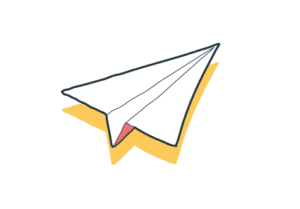Thank you!
We received your application and we will be in touch soon. In the meantime please consider subscribing to our newsletter:

In the past year, the outbreak of Covid-19 has changed the way we see and experience our cities. Across the globe, national lockdowns have tied urban dwellers to their intimate surroundings, transforming their reliance on public outdoor space (link). With social distancing regulations in place, and citizens advised to stay local, urban residents have flocked to public spaces such as parks, playgrounds and city squares.
In the context of Beirut, this reinvigorated reliance has underscored not only the lack of adequate public space, but also the overwhelming need to do something about it. With only ‘21 public parks (link) and gardens, a seaside Corniche and few publicly accessible coastal sites…the total area of parks and gardens amounts to less than 1 sq.m. per resident’. Rather than public space, Beirutians are faced with what Nadia Karizat (link) refers to as “prohibited space”. She describes these as “spaces that were formerly inclusive but now exclude the majority of the population”. This decline in public space she argues, can be attributed to “the self-interest of politicians, the legislation catered towards the real estate and development sector, and the prioritization of an internationally attractive cosmopolitan image [that] has transformed Beirut’s built environment into privatized space”.
In the context of Covid-19, the consequences of this privatization are blatant. For instance, with summer approaching in Beirut, and the relaxation of second wave lockdown restrictions, the government declared that swimming pools would be allowed to re-open. The beaches on the other hand, were to remain closed. As Siba El-Samra (link), a Lebanese Landscape Architect, points out, as all the pools in Lebanon are ‘privately-owned’, it is only those who can afford the high entrance fees that would be able to make use of this opportunity for respite from the city and the sun. Yet, ironically, the neighbourhoods that need this most are those who lose out. This was clear as we conducted participatory workshops with children to construct a playground in the low-income neighbourhood of Karantina. Many of their drawings alluded to access to water and having the possibility to swim. One child from the neighbourhood for example writes “That is me…I am swimming. I love swimming…why don’t you get us a swimming pool? Put it over the bridge?”
This is not to say that Beirut doesn’t have a rich and active public social life. As Beirut Urban Lab (link) have pointed out, in the absence of green space, public life is ‘experienced through its streets and markets, but also through…alleys, staircases, building entrances, vacant lots, and other random sites’. The importance of these spaces should not be taken for granted. As Clare Reishbeth (link), a landscape architect from Shefeld University states: a ‘street corner’ can allow for informal socialising, and the chance to feel ‘part of a local neighbourhood’. Yet, what this public activity is less capable of is creating space for exercise, or allowing the residents of Beirut to ‘enjoy contact with nature’ – both aspects which are known to dramatically enhance one’s quality of life.
With the backdrop of Covid-19 and the more recent and devastating Beirut blast, it is clear that the city needs to reactivate, and create new ‘safe and well-designed public spaces’ (link). In addition to this, these spaces need to foster inclusivity and encourage a sense of common ownership. As Reishbeth has highlighted “a limited collective sense of belonging, shaped by displacement, poverty, political instability and sectarian territories’ are all factors that have contributed to the feeling of exclusion from certain public spaces in Beirut.
It doesn’t have to be this way though and as Karizat has stated “Public space in a divided city plays a valuable role in unifying fragmented neighbourhoods by providing established spaces that produce interaction and communal understanding”. In the context of the Beirut Blast, and rehabilitated efforts to rebuild damaged areas of the city, there is the opportunity to get this right.
We are actively involved in this process, and through projects such as Kan Ya Makan (link), a public neighbourhood intervention in Karantina and the rehabilitation of two other parks in Beirut, we seek to contribute to the production of these new and safe spaces which can provide those who have been denied access to public space the opportunity to participate.
This doesn’t just have to be done through physical implementation, but can also be achieved by activating existing public spaces. Last year, for example, we collaborated with the Zayraqoun team (link) on their pilot performance and parade of “Rehla lla”. The performance took place on Karantina’s streets and was a collaboration between artists, performers, musicians and farmers. Yet, access and activation of these spaces requires input from the local authorities and with covid restrictions still in place, they remain difcult to implement.
Moving forward Beirut needs more activation of public spaces, it needs to devote more resources to the creation of new spaces and most of all, there needs to be acknowledgement of the importance that these spaces provide to the city’s residents.
We received your application and we will be in touch soon. In the meantime please consider subscribing to our newsletter:
